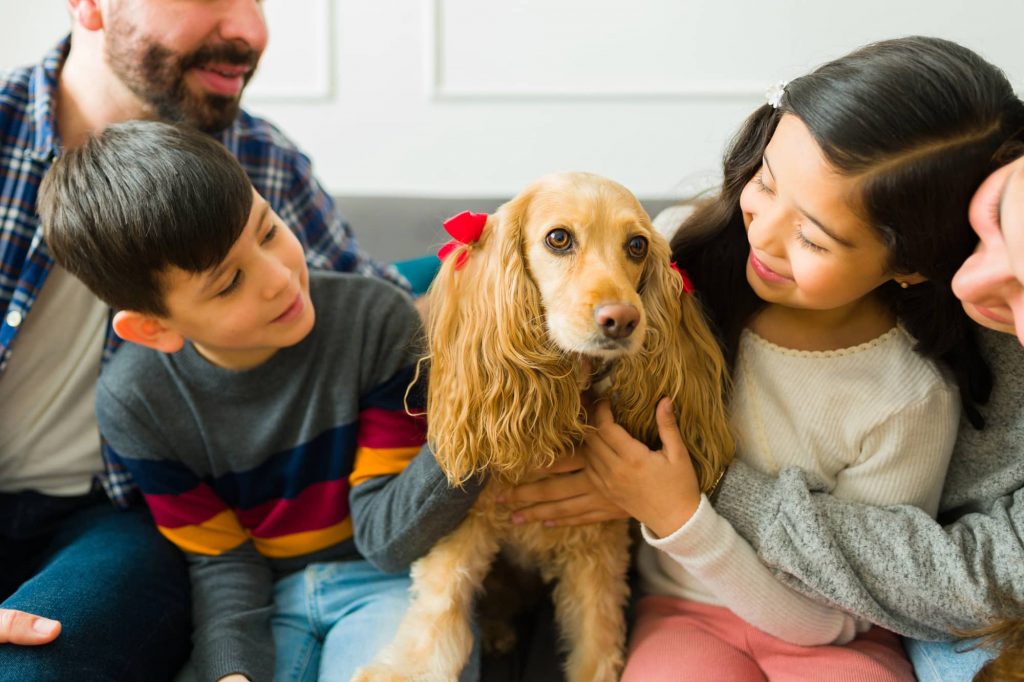Spaniel breeds are known for their loving personalities, cleverness, and inexhaustible energy. Whether you’re interested in a lively Springer, a gentle Cavalier King Charles Spaniel, a fun-loving Cocker Spaniel, or delightful mixed breeds like Bockers, Spanadors or Dockers rehoming one of these medium sized breeds can be profoundly satisfying. Spaniel Ace has more detailed guides on all the key spaniel breeds and mixed breeds.
Success, however, depends on approaching the process with patience and realistic expectations. This guide explains each stage of the rehoming journey, highlights common behavioural challenges, and offers practical advice to help you and your new spaniel thrive together.
The Spaniel Rehoming Journey and the best spaniel charities
Adopting a spaniel in the UK typically involves working with a dedicated rescue charity or breed-specific organisation. Leading groups such as Spaniel Aid UK, Second Chance Spaniel Rescue, and Cocker and English Springer Spaniel Rescue offer thorough guidance and support to adopters.
- Application and Assessment: Begin by filling out an application detailing your lifestyle, experience, and preferences. Rescues focus on matching each dog to a suitable home, considering work commitments, other pets, and the presence of children. Some may not rehome to households with young children or situations where a dog would be left alone for long periods.
- Home Visit: Usually, a volunteer will visit your home to ensure the environment is safe and appropriate for a spaniel. This is a good time to ask questions and receive advice on preparing for your new pet.
- Matching and Introduction: Once approved, you’ll be matched with a spaniel whose temperament fits your situation. Many rescues offer “foster with a view to adopt,” enabling you to temporarily care for a dog before making a final commitment.
- Adoption and Ongoing Support: After a successful introduction, you’ll complete adoption paperwork and pay a fee to help cover veterinary costs. Rescue organisations provide ongoing support, including behavioural advice and access to experienced volunteers.
Common Behavioural Challenges
Spaniels are bright, sensitive, and energetic. Those that have been rehomed may encounter particular difficulties; being prepared for these issues can help ensure a smooth transition and a lasting bond.
- Separation Anxiety: These dogs often become very attached and may struggle when left alone, resulting in behaviours like chewing, barking, or house soiling. Gradual training, positive reinforcement, and mental stimulation can help lessen anxiety.
- Excessive Barking: Lack of exercise or boredom may lead to excessive barking. Regular walks, interactive toys, and consistent routines are vital for keeping your spaniel content.
- Destructive Chewing: Chewing is often a response to stress or excess energy. Providing safe chew toys and plenty of play can reduce this behaviour.
- Hyperactivity and Jumping: High energy can result in jumping up or overly exuberant behaviour. Structured play, training, and clear boundaries will redirect their enthusiasm.
- Resource Guarding: Some spaniels may guard toys, food, or spaces due to previous experiences. Gentle, consistent training — avoiding confrontation — is key to overcoming this.
- Fearfulness and Socialisation Issues: Limited early socialisation or past trauma can cause fear or aggression toward strangers and other animals. Patience, slow exposure, and positive reinforcement help build confidence.
Tips for a Successful Adoption
- Exercise and Mental Enrichment: Spaniels need at least an hour of exercise daily, plus mental activities like scent games or puzzle toys.
- Consistent Training: Positive reinforcement is especially effective for spaniels. Use gentle, consistent guidance to help your dog learn and feel secure.
- Veterinary Care: Rescues ensure adopted dogs receive necessary vet checks, vaccinations, and neutering. Regular ongoing care is essential for your spaniel’s health.
- Support Network: Don’t hesitate to seek help from your rescue organisation or local experts. Many provide lifelong support and access to experienced fosterers and adopters.
Final Thoughts
Rehoming a spaniel is both challenging and rewarding. By learning about the adoption process, preparing for common behavioural issues, and using the support available, you’ll be well-equipped to welcome a spaniel into your home. With patience and commitment, your new companion will become a treasured family member.
If you’re ready to proceed, start by exploring well-reputed UK spaniel rescues such as Spaniel Aid UK, Second Chance Spaniel Rescue, and Cocker and English Springer Spaniel Rescue to find your future companion.







